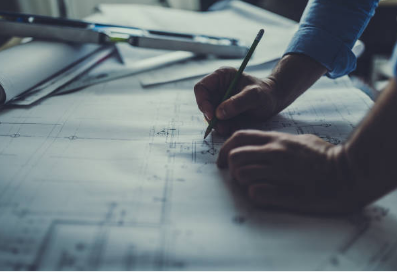Dubai, a city synonymous with futuristic innovation and cutting-edge infrastructure, is once again leading the charge—this time in revolutionizing traffic management through artificial intelligence. By embracing AI technologies, Dubai is transforming its road networks into intelligent ecosystems that enhance traffic flow, reduce congestion, and elevate commuter safety. In a world rapidly urbanizing, Dubai’s model offers a glimpse into the future of smart city mobility.
The Rise of Smart Traffic Systems in Duba
i
Over the last decade, Dubai has emerged as a global pioneer in deploying smart city technologies, with AI traffic management at the core of this transformation. Traditional traffic systems often struggle to cope with rapid population growth and increased vehicle density. Recognizing these challenges, Dubai’s government launched the Smart Dubai initiative, aligning with the broader UAE Vision 2031 and Dubai’s goal to become the smartest city in the world.
Through this initiative, the Roads and Transport Authority (RTA) has implemented advanced AI algorithms to monitor, predict, and manage traffic in real time. These AI systems are not only reactive but also predictive, using data from thousands of sensors, cameras, and GPS devices across the city.
How AI Is Changing the Game in Traffic Control
Artificial intelligence plays a central role in Dubai’s traffic transformation. Here’s how:
1. Real-Time Traffic Monitoring and Analytics
AI-driven platforms like the RTA’s Intelligent Traffic Systems (ITS) are capable of real-time analysis. These systems process data from over 8,000 cameras and sensors spread across the city, detecting traffic volumes, incidents, and patterns.
With machine learning algorithms, the system can forecast congestion and automatically adjust traffic signals to improve flow. This real-time adaptability helps alleviate bottlenecks before they escalate into gridlocks.
2. Smart Traffic Signals and Adaptive Control
The deployment of adaptive traffic signal control systems is one of Dubai’s standout innovations. These smart signals adjust their timing dynamically based on actual traffic conditions, prioritizing heavily congested lanes during peak hours.
By minimizing idle times at intersections, the system reduces fuel consumption, decreases carbon emissions, and shortens travel times—benefiting both the environment and the economy.
3. AI-Enhanced Emergency Response Routing
Dubai’s AI infrastructure supports quicker response times for emergency vehicles. When an accident is detected, AI systems reroute traffic in real time and create dedicated corridors for ambulances and fire trucks, ensuring they reach their destinations faster.
4. Predictive Traffic Modeling
AI is not just reacting to real-time data—it’s also predicting future traffic trends. Using historical data and machine learning, Dubai’s systems can forecast traffic conditions based on day, time, weather, and even public events.
This predictive modeling allows city planners to make data-driven decisions when designing infrastructure or implementing traffic regulations.
Key Projects and Innovations in Dubai’s AI Traffic Landscape
Several landmark projects are putting Dubai on the global map of AI-powered urban mobility:
The Al Barsha Smart Control Centre
Opened by the RTA, this facility is the nucleus of traffic intelligence. The center monitors real-time traffic conditions, tracks public transport, and coordinates emergency responses across Dubai’s metropolitan area. AI tools here manage over 60% of Dubai’s road network, with expansion plans aiming to cover 100% by 2026.
Smart Pedestrian Crosswalks
Dubai has begun trialing AI-based pedestrian detection systems. These smart crosswalks use motion sensors and AI vision to identify pedestrians waiting to cross and automatically adjust signal timings to improve safety and efficiency.
AI Integration with Dubai Police
Dubai Police has integrated AI to forecast accident-prone areas and deploy patrol units proactively. The system analyzes accident patterns and vehicle movement to ensure optimal law enforcement presence where and when it’s needed most.
Benefits of AI in Urban Traffic Management
Dubai’s AI traffic strategy yields a broad spectrum of benefits, including:
- Reduced Congestion: Traffic jams have decreased significantly in areas where smart systems are active.
- Improved Air Quality: Fewer idle vehicles mean reduced emissions, contributing to cleaner urban air.
- Enhanced Road Safety: Faster emergency response times and predictive policing lead to fewer fatalities.
- Greater Efficiency: Commuters spend less time in traffic, improving overall quality of life.
- Cost Savings: Optimized traffic flow reduces operational costs for both public services and private commuters.
Challenges and the Road Ahead
Despite its success, Dubai faces challenges in fully realizing AI’s potential in traffic systems:
- Data Privacy: As with any data-driven system, protecting the privacy and security of commuter information is paramount.
- System Integration: Integrating AI traffic solutions with legacy infrastructure requires significant investment and technical expertise.
- Scalability: Ensuring consistent performance as the population grows and road networks expand is an ongoing concern.
However, Dubai’s proactive approach, supported by strong governance and investment, positions it well to overcome these hurdles.
Global Implications: A Model for Future Cities
Dubai’s success in leveraging AI for traffic management has global relevance. As cities around the world face mounting traffic woes, Dubai offers a replicable model for implementing smart mobility solutions.
Urban planners and governments worldwide are watching closely, learning from Dubai’s blend of technology, governance, and public-private collaboration. Its example proves that with the right vision and tools, urban traffic chaos can be transformed into a symphony of coordinated movement.
Conclusion: Driving Into the Future
Dubai’s engineering advancements in AI-powered traffic management reflect not only its technological ambition but also its commitment to sustainable and smart urban living. By transforming data into actionable insights, Dubai is setting a global benchmark in mobility innovation. As the city continues to refine and expand its AI infrastructure, the rest of the world is taking notes—hoping to follow in the tracks of this bold, intelligent journey into the future of urban mobility.
Let me know if you’d like this article tailored further to a specific platform, audience, or format (e.g., LinkedIn post, white paper, or blog format).
Also Read :
